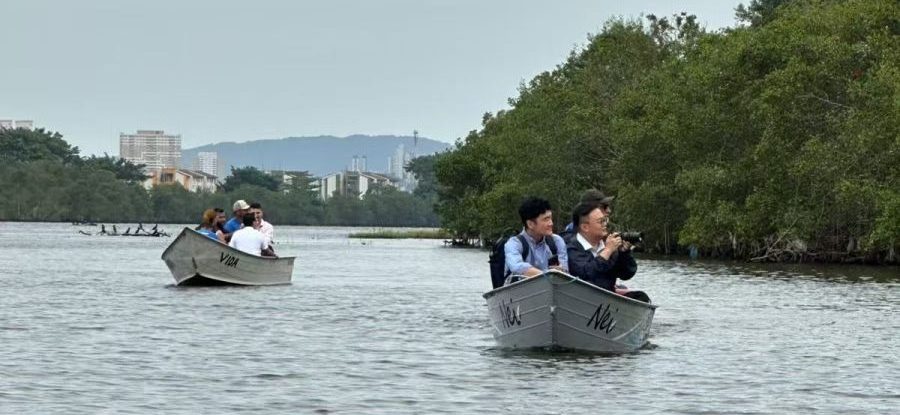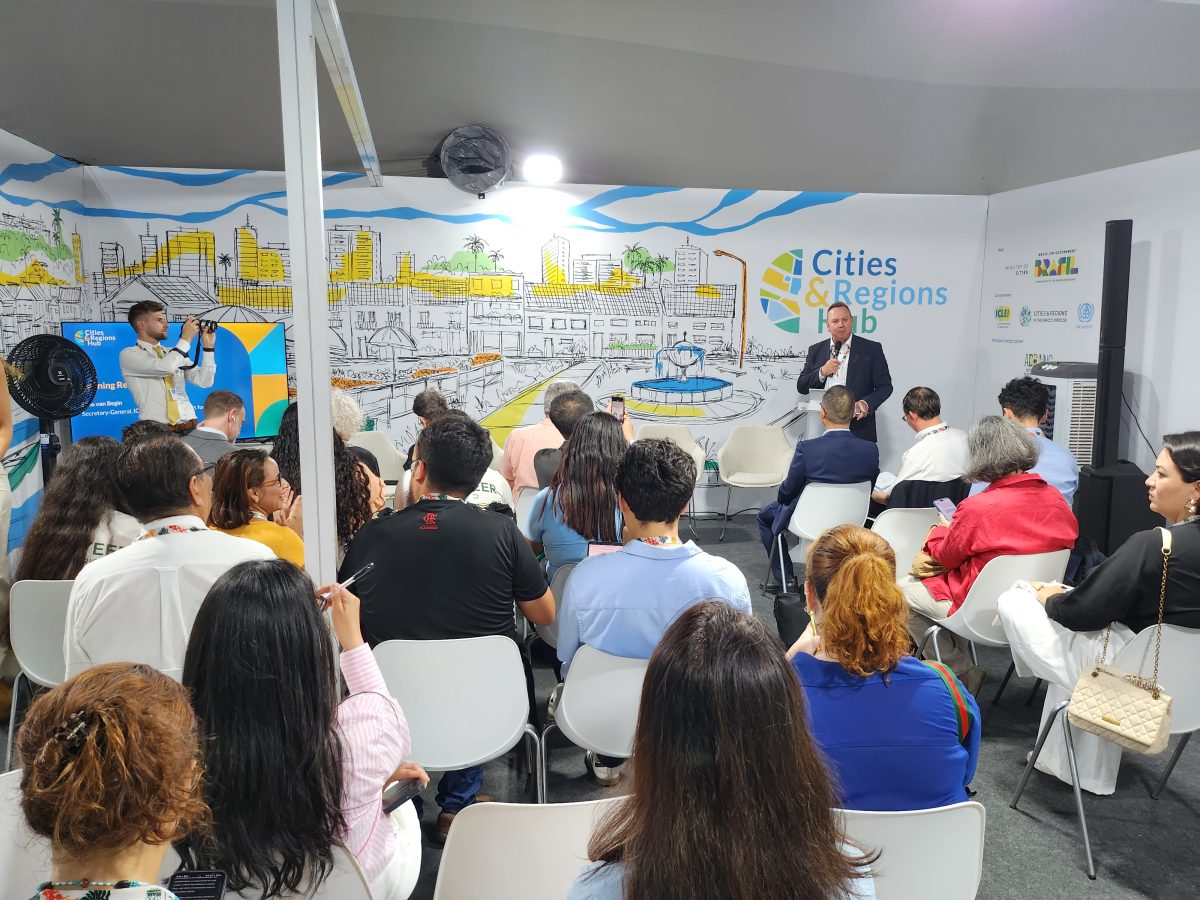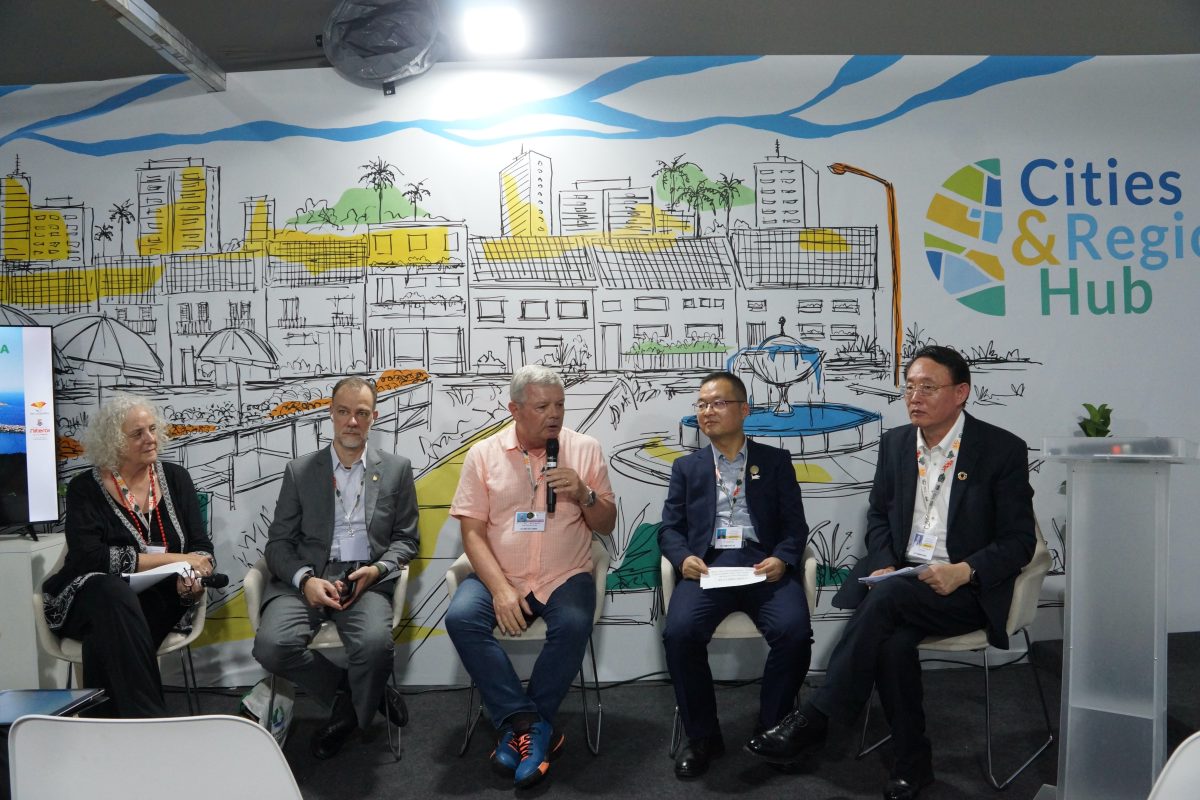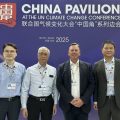ICLEI Showcases Shenzhen’s Blue Carbon Initiatives at COP30, Strengthening Nature-Based Solutions for Climate Action

On November 12, during the 30th Conference of the Parties (COP30) to the United Nations Framework Convention on Climate Change (UNFCCC) in Belém, Brazil, the Shenzhen Session titled “Restore Mangrove Ecosystem, Unlock Blue Carbon Potential – Integrate Climate and Nature Action in Cities” took place at the “Cities & Regions Pavilion”. Organized by ICLEI with guidance from the International Mangrove Center and the Shenzhen Municipal Planning and Natural Resources Bureau, and supported by the Shenzhen International Low-Carbon Forum Development Center, the event gathered representatives from governments, international organizations, research institutions, and local governments worldwide. Participants explored blue carbon development pathways, shared mangrove management experiences, and promoted integrated nature-based and climate actions in urban environments, further deepening international cooperation.

Strengthening Synergistic Actions for Nature and Climate: Shenzhen’s Experience Offers an International Model
Gino Van Begin, Secretary General of ICLEI, emphasized in his opening remarks that climate change, biodiversity loss, and urban development are deeply interconnected, placing city leaders at a pivotal crossroads. He stated, “The most effective and economical path forward is to reinvest in natural systems—including self-regulating, regenerative ecosystems like mangroves.”
He praised Shenzhen’s sustained commitment to mangrove conservation and restoration, highlighting that its successful practices provide a replicable model for coastal cities globally, especially in rapidly developing regions. “The Shenzhen experience demonstrates to the world that urban development and ecological conservation are not mutually exclusive, but can actually promote each other,” he said.

Gino Van Begin, Secretary General of ICLEI, delivered the opening remarks.
Shenzhen’s Blue Carbon Initiative: From Effective Conservation to Institutional Innovation
Wu Zhenghong, Director of the Shenzhen Natural Resources and Real Estate Assessment Research Center, introduced the policies Shenzhen has implemented in recent years to advance the “Mangroves Plus” initiative. By applying natural capital accounting, conducting methodological research, and exploring market-based mechanisms, Shenzhen has established a comprehensive innovation pathway—from ecological monitoring and value assessment to successful transactions.

Wu Zhenghong, Director of the Shenzhen Natural Resources and Real Estate Assessment Research Center, introduced the policies Shenzhen has implemented in recent years
In 2023, Shenzhen held China’s first mangrove conservation carbon credit auction, achieving a price of $68 per ton—a national record at the time. This initiative integrated the ecological value of mangroves into the market system and encouraged other regions in Guangdong Province to explore cross-regional blue carbon cooperation.
Exploring Pathways and Priorities for Future Inter-City Cooperation
At the roundtable discussion, Kobie Brand, Deputy Secretary-General of ICLEI, praised Shenzhen’s ongoing efforts in mangrove conservation and shared ICLEI’s experience in advancing coastal ecological protection in Africa. She suggested that future inter-city cooperation on mangrove restoration and blue carbon development could focus on technical training, promoting pilot projects, jointly establishing regional governance mechanisms, and developing equitable trading systems.
Representatives from Shenzhen, the State of Sergipe, and the City of Niterói in Brazil discussed mangrove conservation and cross-regional blue carbon cooperation. They explored opportunities for policy innovation, market mechanisms, governance models, and international collaboration, expressing optimism for future partnerships.

Round table
Promote Knowledge Sharing And The Implementation Of Cross-Regional Projects
At the event, the Shenzhen Natural Resources and Real Estate Appraisal Development Research Center released the “Methodology for Mangrove Conservation (Version 2.0)”, offering a technical foundation for global mangrove carbon-sink accounting, project development, and transaction system construction.
Additionally, the Shenzhen Natural Resources and Real Estate Assessment Research Center signed bilateral MoUs with the ICLEI East Asia Secretariat and the State of Sergipe, Brazil, launching new collaborations in blue carbon research, urban capacity building, and cross-regional project development.

Shenzhen Natural Resources and Real Estate Assessment Research Center signed bilateral MoUs with the ICLEI
From Concept To Action: Unleashing Nature’s Full Potential
This side event showcased Shenzhen’s achievements and China’s expertise at the United Nations Climate Change Conference, enhancing global understanding of the value of blue carbon ecosystems. It fostered exchanges among participating cities on nature-based solutions, carbon market mechanisms, and capacity building, laying the groundwork for future collaboration.
Looking ahead, ICLEI will continue to serve as a platform for knowledge sharing and collaboration among global cities, driving coordinated action on nature and climate to enhance urban resilience and promote sustainable development.
After the event, the Shenzhen delegation visited Cubatão, an ICLEI member city in Brazil, on November 13. They met with municipal departments to discuss urban renewal, mangrove conservation, relocation of disadvantaged populations, and sponge city development. Cubatão looks forward to close cooperation with Shenzhen to accelerate its green transition and foster inclusive growth in what was once southern Brazil’s most polluted industrial city.





